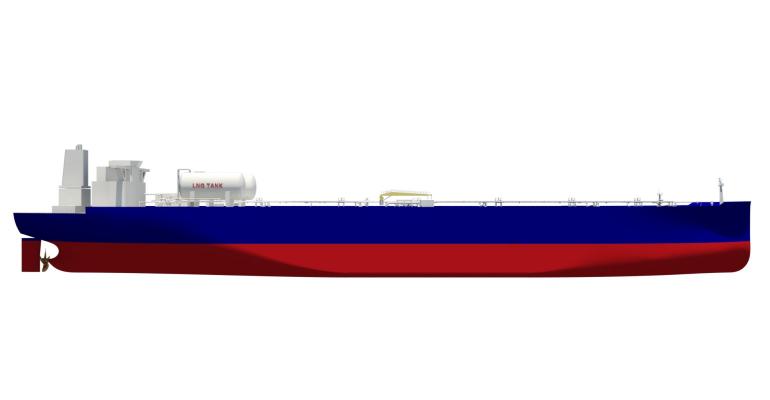Shell has signed agreements to charter 10 new VLCCs in deals which will mean that come 2023, 50% of its time chartered crude oil tanker fleet will be powered by dual fuel LNG engines.
All 10 of the vessels will be built in South Korea by DSME, with four ships from Advantage Tankers, three from AET and three from International Seaways. The first will enter service in 2022 on a seven-year charter to shell.
“Today and for the foreseeable future, LNG is the choice for new builds to ensure we are not adding heavier emitters into the global fleet while we work hard at developing zero-emissions fuels,” said Grahaeme Henderson, Global Head of Shell Shipping & Maritime.
“There is real urgency to tackle emissions from this sector and adopting LNG while developing zero-emissions fuels options, will make a significant difference to cumulative emissions.”
Shell is also working to make LNG available as a fuel in more ports around the world ahead of an expected increase in demand for the LNG as a marine fuel.
Sung Geun Lee, President and CEO of DSME, said: “The vessels have been designed with state-of-the-art technologies and not only achieve a huge reduction in greenhouse gas emissions but are also economically viable. They have a low fuel consumption with their dual-fuel LNG engines and will bring significant benefits to both the charterer and the ship owners over the long-term.”
Tugrul Tokgoz, CEO of Advantage Tankers, added: “We believe dual fuel LNG propulsion will continue to grow as our industry strives to meet long term goals for greenhouse gas emissions. LNG has the benefit of being an abundant and low-cost fuel source and importantly produces 30% less carbon emissions than alternative conventional fuel used today.”
Copyright © 2024. All rights reserved. Seatrade, a trading name of Informa Markets (UK) Limited.
Add Seatrade Maritime News to your Google News feed.  |

